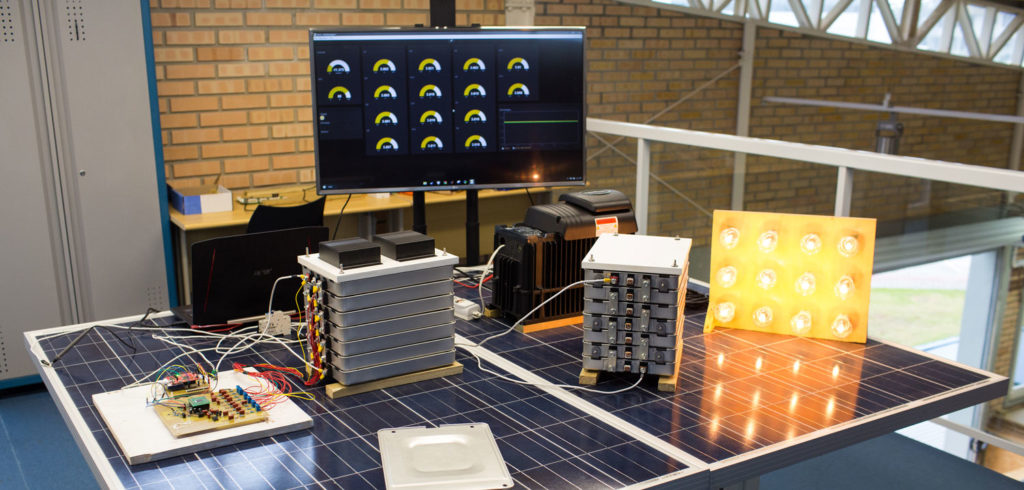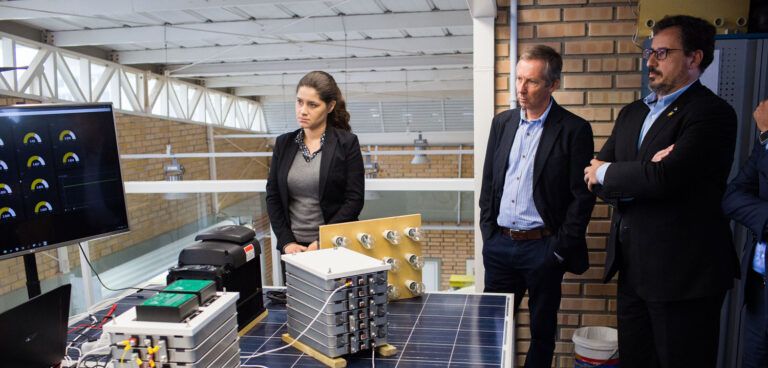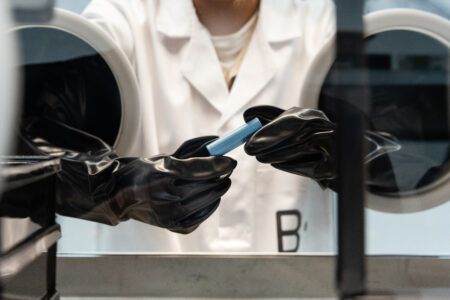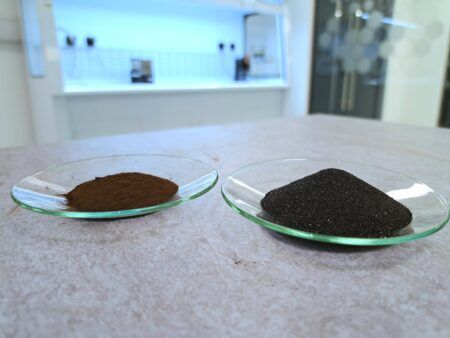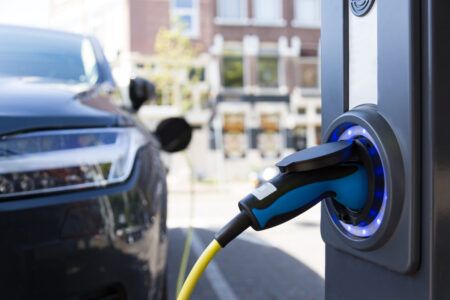Nissan Brazil and the Federal University of Santa Catarina (UFSC) have signed a memorandum of intent to test second-life applications for EV batteries.
The agreement will enable the OEM and the UFSC research group to test potential applications for used vehicle batteries, with Nissan initially supplying six Leaf batteries that have been used in taxis in Sao Paolo and Rio de Janeiro.
“Worldwide, Nissan has been forming partnerships with the purpose of integrating electric vehicles with society and promoting electric mobility,” says Marco Silva, provost for research at UFSC. “Upon removal, the batteries retain a high charging and supply capacity. In Brazil, joint efforts alongside researchers of the Federal University of Santa Catarina will be essential for testing the batteries’ full potential.”
One of the main lines of research for this partnership will be continued exploration of EV batteries use in energy storage systems – Nissan’s Xstorage Buildings initiative – to generate and collect power independently from the conventional grid.
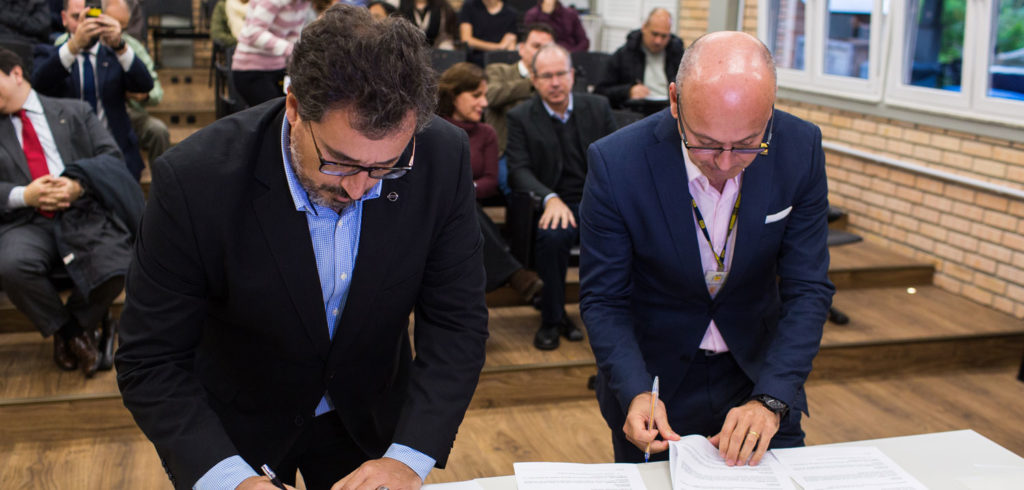 Research will also examine solar power storage. One of the first applications being planned by researchers will be installed onto the building of the UFSC Photovoltaic Laboratory. The electricity generated throughout the day via solar panels on the laboratory’s rooftops will be stored in a set of Nissan Leaf batteries. Then, the stored energy can be used during the night, when electrical fees are most expensive.
Research will also examine solar power storage. One of the first applications being planned by researchers will be installed onto the building of the UFSC Photovoltaic Laboratory. The electricity generated throughout the day via solar panels on the laboratory’s rooftops will be stored in a set of Nissan Leaf batteries. Then, the stored energy can be used during the night, when electrical fees are most expensive.
“This partnership with Nissan is very important for our laboratory because it will allow us to unite the two pillars of our research, which are electric mobility and energy storage,” says Prof. Ricardo Rüther, coordinator of the UFSC Photovoltaic Laboratory. “We are excited about the wide array of possibilities to repurpose these batteries.”
